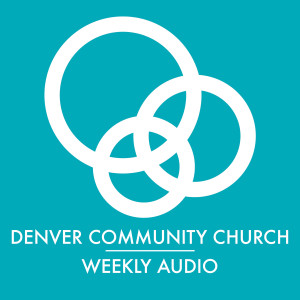
The second elegy speaks toward anger. God’s anger with the people of Judah, and the anger of the poet toward God - one who is almost an enemy of the people. This is so necessary, because many have been taught to hold it in, to not speak to God this way, to keep our “emotions in check” and to not let them “get the better of us.” But that is not what we witness here, not at all. And why wouldn’t the poet be angry? How angry would you be if no one listened to your cry, to your wailing because of the pain and the hopelessness of your people? How angry might you be with God when you cry out and its seems God ignores you?
It’s likely the anger over the pain would well up, and eventually it would spill out, and it should spill out. Especially toward and before God. As Miroslav Volf rightly observes, unattended rage should be dropped at the feet of God. Why? Because God can handle it. More than that, naming and seeing our anger - allowing it to flow can be a gateway for us to see and name that which is causing our anger. Anger, can actually be a first step toward healing, toward speaking truth. And speaking truth is, after all, what prophets do. As Kathleen O’Conner points out, when we name what is wrong, when we lament, when we open ourselves to grief and anger - we expose the conditions that cause God’s good world to get out of order; we name them, and in doing so, open make them and us visible for remedy.
More Episodes
 2021-08-15
2021-08-15
 916
916
 2021-08-08
2021-08-08
 944
944
 2021-08-03
2021-08-03
 859
859
 2021-07-25
2021-07-25
 931
931
 2021-07-18
2021-07-18
 879
879
 2021-07-18
2021-07-18
 745
745
 2021-07-08
2021-07-08
 920
920
 2021-06-30
2021-06-30
 911
911
 2021-06-22
2021-06-22
 830
830
 2021-06-16
2021-06-16
 855
855
 2021-06-01
2021-06-01
 761
761
 2021-05-25
2021-05-25
 656
656
 2021-05-18
2021-05-18
 647
647
 2021-05-11
2021-05-11
 649
649
 2021-04-26
2021-04-26
 635
635
 2021-04-20
2021-04-20
 584
584
 2021-04-12
2021-04-12
 683
683
 2021-04-11
2021-04-11
 568
568
Create your
podcast in
minutes
- Full-featured podcast site
- Unlimited storage and bandwidth
- Comprehensive podcast stats
- Distribute to Apple Podcasts, Spotify, and more
- Make money with your podcast
It is Free
- Privacy Policy
- Cookie Policy
- Terms of Use
- Consent Preferences
- Copyright © 2015-2024 Podbean.com





